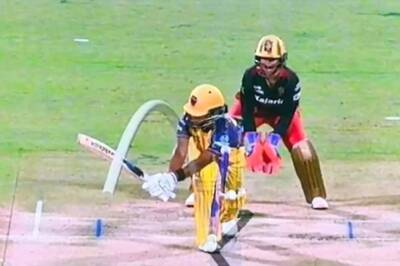
views
BRUSSELS: The European Union’s executive defended the bloc’s top diplomat on Monday over a trip he made last week to Russia, which announced the expulsion of three EU diplomats while he was holding talks.
EU foreign policy chief Josep Borrell said he learned of the expulsions via social media while he was talking to Russian Foreign Minister Sergei Lavrov in Moscow on Friday.
In a blog released late on Sunday, Borell said his pleas to Russia halt the expulsions were ignored.
Estonia’s former defence chief Riho Terras, now an EU lawmaker, has started a campaign to call for Borrell’s resignation.
But the executive European Commission said it had no regrets about Borrell making his first trip to Moscow as the coordinator of EU foreign policy because Russia was on a course towards confrontation – which Borell sought to avert.
“The trip was necessary. One doesn’t give up on a trip because it looks difficult,” Commission spokesman Eric Mamer said in Brussels. “A trip is not a success or a failure on the basis of what happens during a particular moment.”
Kremlin spokesman Dmitry Peskov told reporters on Monday that Russian officials “were not the initiators of the collapse in relations”.
He said the expulsions of diplomats from Germany, Poland and Sweden, accused by Moscow of taking part in protests last month against jailed Kremlin critic Alexei Navalny, took place a day before Borrell’s trip.
Some EU states are now intensifying a push for new Western sanctions against Moscow, two diplomats said.
Poland convened a video call with EU states on Monday that was joined by envoys from Britain, the United States, Canada and Ukraine, as well as allies of Navalny, they said.
“DISCONNECTING” EAST AND WEST
During Borell’s visit, he and Lavrov gave a news conference at which the Russian foreign minister described the EU as “an unreliable partner” and the Spaniard praised Russia’s COVID-19 vaccine.
Borrell went to Moscow to seek Navalny’s release and to try to relaunch EU-Russia relations. But in Sunday’s blog post, he said Friday’s news conference had been “aggressively staged” and the trip was “very complicated.”
Borrell also said the expulsions and a denial of his request to visit Navalny had cemented his view that “Europe and Russia are drifting apart”.
“Russia is progressively disconnecting itself from Europe and looking at democratic values as an existential threat,” wrote Borrell. “It will be for member states to decide the next steps, and yes, these could include sanctions.”
Russia has been under Western economic sanctions since it annexed Crimea from Ukraine in 2014, but it is a major energy supplier that also helps the West in areas such as upholding the 2015 nuclear deal with Iran and tackling climate change.
Navalny was jailed on Feb. 2 after a Russian court ruled he had violated the terms of a suspended sentence in an embezzlement case he says was trumped up. EU leaders are due to discuss their response at a summit in March.
Disclaimer: This post has been auto-published from an agency feed without any modifications to the text and has not been reviewed by an editor
Read all the Latest News, Breaking News and Coronavirus News here


















Comments
0 comment